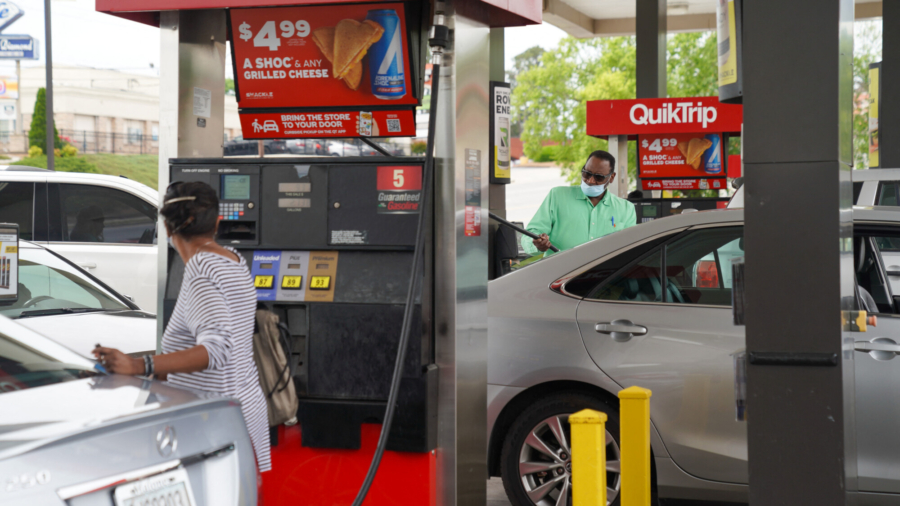Gasoline prices are at a seven-year high, just in time for travelers to hit the road for Memorial Day.
A gallon of regular gas costs just under $3.05 on average across the United States, according to AAA. That’s up from $2.89 a month ago and $1.97 a year ago.
But some Americans are feeling more pain at the pump than others.
California has by far America’s highest gas prices—$4.20 a gallon. Hawaii’s the only other state in the same ballpark, with regular gas prices averaging $3.93 a gallon.
Other West Coast states are also some of the country’s priciest for gasoline: Nevada, Oregon, Washington, Utah, and Alaska all had gas prices averaging $3.33 a gallon or higher.
Southern states have some of America’s cheapest gas. Well, not exactly cheap per se, but gas is far less expensive in the South than out West.
Gas is least expensive in Louisiana, averaging $2.71 a gallon. Mississippi, Texas, Missouri, Oklahoma, and Arkansas all have gas under $2.80 a gallon on average.

More Demand Equals Higher Prices
Higher oil prices brought on by a pickup in economic activity and subsequent demand for fuel is driving the increase in gas prices.
The start of the summer driving season this weekend will also boost demand and add further pressure to prices, as will the annual requirement that gas stations switch over to the more expensive “summer blend” designed to cut down on seasonal smog.
But prices vary greatly at the roughly 150,000 stations nationwide, due in part to varying taxes and fees, and partly due to the supply of fuel from refineries in specific regions.
A Repeat of Shortages?
High prices notwithstanding, a potential supply shortage of gas looms as perhaps the more serious problem this summer.
A preview of what that could look like came earlier this month when the Colonial Pipeline, a major artery delivering fuel from Gulf Coast refineries to the East Coast, was shutdown for about a week due to a cyber attack, prompting widespread outages at stations in many states.

But experts aren’t worried as much about another malicious hack as they are about a critical shortage of truckers qualified to drive the tankers that deliver gas to stations.
An estimated 20 percent to 25 percent of tanker trucks are currently parked due to a lack of drivers, according to National Tank Truck Carriers, the industry’s trade group. But even before the pandemic, there was a driver shortage as the industry lost a number of them during the economic slowdown that caused the demand for gas to plunge.
The supply shortage might initially hit only a few small, independent stations. But the worry is that even a handful of stations running dry could spark panic buying, particularly in beach communities and other vacation hot spots.
After all, nervous drivers topping off their tanks was just as significant a cause of the recent shortage as was the Colonial shutdown, said Tom Kloza, global head of energy analysis for the Oil Price Information Service, which tracks gas prices for AAA. And fresh memories of that shortage only make that kind of panic buying more likely, he added.
“I think the propensity for panic among the population is much, much higher than it has been,” said Kloza. “I think we have to worry about prices, supply, and crowd behavior.”


